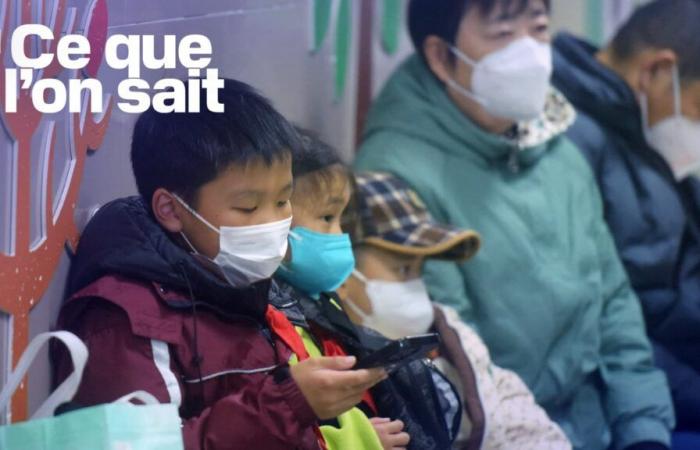
American health authorities have expressed concern about an increase in cases of the respiratory virus HPMV in China. For the moment, neither the Chinese authorities nor the WHO have issued an alert on this subject.
Since the global Covid-19 crisis, respiratory diseases in China have been closely scrutinized. In recent weeks, images of Chinese hospitals invaded by masked people have made the rounds on social media, sparking concern about a new pandemic.
As our colleagues from TF1Info explain, most of these images are difficult to date and locate. However, American authorities have confirmed in the press an increase in Chinese cases of HPMV, a virus that can cause respiratory illnesses such as bronchitis or pneumonia.
· American authorities warn, WHO tempers
The Centers for Disease Control and Prevention, which forms the main public health agency in the United States, said Monday, January 6, that it was “monitoring” an increase in cases of human metapneumovirus (HPMV) in northern China. Infections which reach a “pre-pandemic” stage, according to health authorities.
“CDC is aware of the increase in the number of HMPV cases in China and is in regular contact with its international partners and monitoring reports of the increase in the disease,” a spokesperson said in a statement cited by the American press, including the political media The Hill.
“These reports are not currently a cause for concern in the United States,” the spokesperson added.
Quoted by ABC News, a spokesperson for the World Health Organization (WHO) said that data from China indicates “there has been a recent increase in acute respiratory infections” but that “the “The overall scale and intensity of respiratory infectious diseases in China this year are lower than last year.”
On the side of the Chinese authorities, there is no alarm either. “Respiratory infections tend to peak during the winter season,” Chinese Foreign Ministry spokesperson Mao Ning said on Friday, quoted by The Guardian.
“Diseases appear to be less severe and spreading on a smaller scale compared to the previous year,” she added, without explicitly mentioning the HPMV virus.
· A respiratory virus with variable symptoms
“Human metapneumovirus (HMPV) can cause upper and lower respiratory illness in people of all ages, especially young children, older adults, and people with weakened immune systems,” the CDC website states. Americans.
The symptoms associated with this virus vary. These include cough, fever, nasal congestion and shortness of breath. “Clinical symptoms of HMPV infection can progress to bronchitis or pneumonia and are similar to those of other viruses that cause upper and lower respiratory infections,” the CDC fact sheet on the virus continues.
HMPV is transmitted by droplets emitted when coughing or sneezing, by “close personal contact” or by putting your hand to your mouth, eyes or nose after touching contaminated objects.
· A virus already present in the United States
The HPMV virus, discovered in 2001 in the Netherlands, is nothing new. It already circulates in the United States from winter to spring, according to the CDC, and had already alerted American doctors last year.
In recent weeks, US HPV cases were up slightly, with 1.94% of weekly positive tests in the months of November and December, according to CDC data cited by ABC News. However, these figures remain much lower than those for the flu (18.71% of positive tests) and covid-19 (7.10%) over the same period.
According to a survey of The Lancet published in 2020, more than 14 million young children worldwide were estimated to have been infected with HMPV in 2018, with more than 600,000 hospitalizations and at least 16,000 deaths.





